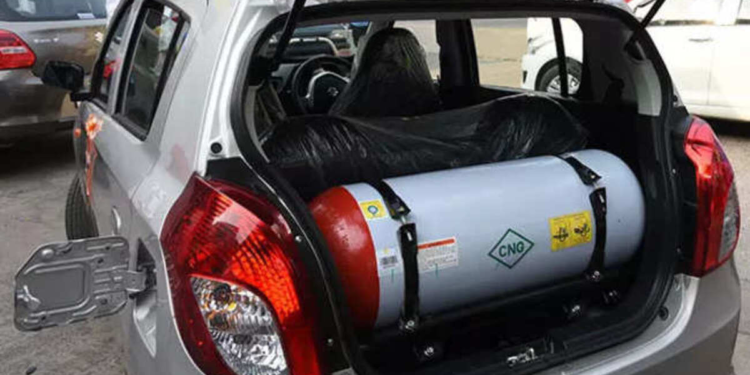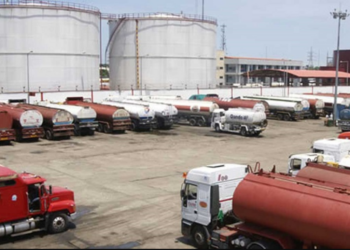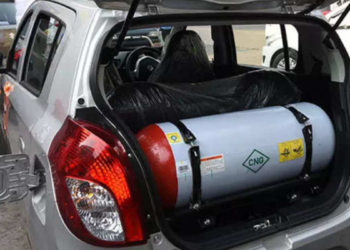For compressed natural gas (CNG) to become as widely accessible as petrol and diesel across Nigeria, experts suggest that retail prices may need to rise to around N520 per standard cubic metre (SCM), ensuring commercial viability while still offering significant savings to drivers and passengers.
They argue that current prices, while cheaper than petrol and diesel, are not sufficient to attract large-scale private investment needed to expand refueling infrastructure nationwide and make CNG reliably available for everyday use.
Two years after the Federal Government launched its push for CNG following the removal of fuel subsidies, adoption remains below expectations.
Across the country, CNG prices currently range from N230 to over N500 per SCM, compared with petrol at N830–N880 per liter and diesel above N1,000, highlighting the fuel’s potential savings but also the challenges of limited access.
Early adopters have reported meaningful reductions in operating costs, yet limited station availability and reliance on truck-based distribution continue to hinder seamless access.
As of January 2025, approximately 50,000 vehicles and trucks operate on CNG, far short of the government’s goal of one million by 2027, highlighting the challenges facing Nigeria’s CNG ambitions.
Nigeria’s CNG journey so far
The push for CNG adoption gained momentum after the removal of fuel subsidy by the Bola Tinubu administration in 2023, as rising fuel prices created demand for a more affordable and sustainable energy alternative.
The Presidential Compressed Natural Gas Initiative (PCNGI) was established to accelerate nationwide adoption, providing free vehicle conversion for commercial drivers affiliated with unions at approved centers. Converted vehicles can operate in hybrid mode, switching seamlessly between petrol, diesel, and CNG. Safety features—including reinforced cylinders, pressure-release valves, and automatic shut-off sensors—ensure secure operation.
States such as Lagos, Ogun, Oyo, Kwara, Niger, Enugu, and Rivers complemented the federal effort by rolling out converted buses, establishing refueling stations, and supporting vehicle conversion centers. Federal interventions included distributing CNG buses and hybrid vehicles to trade unions, students, and other key beneficiaries.
By mid-2025, daughter stations increased from 20 to over 65, attracting more than $450 million in investment, training over 2,500 technicians, and operating across 21 states. Additionally, PCNGi signed a $27.3 million MoU with LNG Arete Ltd. in April 2025 to construct a gas plant in Northern Nigeria with a processing capacity of seven million standard cubic feet per day (MMSCFD), aimed at addressing regional energy gaps.
Drivers and passengers experience savings, but challenges persist
For drivers who have adopted CNG, the financial benefits are substantial. Abuja-based e-hailing driver Samuel Udedike, who converted his vehicle in October 2024, reported a more than 50% reduction in daily fuel expenses.
“I now pay N230 per SCM to refill my cylinder,” said Abuja-based e-hailing driver Samuel Udedike, who converted his vehicle in October 2024. “For example, with about N3,500 worth of CNG I can cover the day’s trips that some colleagues cover on petrol or diesel — which often costs them N20,000–N30,000.” he said.
Lagos driver Soji Tope shared similar experiences but noted limited station availability as a challenge.
“CNG is cheaper, but stations are not as many as regular filling stations. Even so, the savings make the inconvenience worthwhile,” he explained.
Passengers also enjoy lower fares. Blessing Ogbebor, who travelled from Lagos to Warri in January 2025, paid N18,000 for a CNG-powered bus, compared to N25,000 or more on petrol and diesel alternatives.
However, her journey included a 30-minute detour in Benin to refill, highlighting the logistical limits of current infrastructure.
These experiences reflect a dual reality: CNG offers substantial savings, yet infrastructure gaps remain a barrier to seamless usage.
Clarification on CNG measurement and distance coverage
To provide a clearer understanding of CNG usage, Nairametrics spoke to Joseph Oluwafemi, CNG coordinator at Autogig International Resources Limited, who explained that CNG is sold in standard cubic metres (SCM), not in kilograms as often misrepresented.
According to him, it takes about 13 to 15 SCM to fill a 65kg CNG cylinder, and a full cylinder can power a vehicle for roughly 100 kilometres under normal conditions. He noted that factors such as vehicle type, engine modification, gas pressure at dispensing stations, and engine condition influence the actual mileage, but on average, a 65kg Type 1 CNG cylinder provides about 100km of coverage.
For comparison, petrol or diesel vehicles require about 15 to 18 litres to cover the same 100 kilometres, under similar conditions.
Price comparison: CNG vs petrol and diesel
Using current market prices, the cost comparison between fuels for covering 100 kilometer’s shows a clear gap. For CNG, at the lower retail price of N230 per standard cubic meter (SCM), a motorist would spend about N3,450, while at the higher end of N500/SCM, the same distance would cost roughly N7,500.
In contrast, petrol priced between N830 and N880 per liter means motorists would spend between N12,450 and N14,940 at N830, or between N13,200 and N15,840 at N880, to travel the same 100 kilometers, assuming a fuel requirement of 15 to 18 liters. Diesel, at an average of N1,000 per liter, would cost between N15,000 and N18,000 for the same trip.
This breakdown shows that CNG remains significantly cheaper than both petrol and diesel, even at the high retail price of N500/SCM. At the lower price point of N230/SCM, the savings for motorists are even more substantial.
Update on CNG pricing
Government sources told Nairametrics that effective September 1, 2025, the price of compressed natural gas (CNG) for all categories of passenger vehicles was set at N380 per SCM in Abuja and Lagos.
For all other locations, the N380/SCM rate had already been implemented two months earlier.
This adjustment represents an increase from the previous lowest retail price of N230/SCM, narrowing the wide range between N230 and over N500 that motorists had been paying, depending on location and distribution costs.
Nigeria’s CNG infrastructure gap
Despite price advantages, infrastructure limitations continue to constrain adoption. As of January 2025, just over 50 refueling stations were operational nationwide, with approximately 150 more planned by the end of 2025.
Prices fluctuate between N230 and N560 per SCM depending on proximity to pipelines and any regasification costs. Distribution remains heavily reliant on trucks moving CNG from mother to daughter stations, leading to uneven access, higher costs for stations located further from pipelines, and occasional supply delays. Queues remain common in several locations.
With only 50,000 vehicles running on CNG against the PCNGi target of one million by 2027, the gap between current adoption and government goals is substantial. Yet, vehicles operating on CNG continue to save significantly compared to diesel at around N1,000 per liter and petrol at N830–N880 per liter, highlighting the fuel’s potential if infrastructure challenges are addressed.
Experts’ views on commercial viability
Experts emphasize that long-term success depends on creating a commercially viable market that attracts private investment. Jide Pratt, COO of Aiona and Country Manager at TradeGrid, said:
“Commercial viability has to drive pricing. As more stations are built, the supply gap will shrink, helping to balance demand.”
He explained that current CNG prices range from N330 to N560 per SCM depending on distance from pipelines, noting that N520 per SCM could sustain commercial investment while keeping fuel cheaper than petrol and diesel.
Pratt also highlighted Nigeria’s 209 trillion standard cubic feet of proven gas reserves as a strong foundation for scaling the sector.
Independent transport researcher Tonami Playman raised concerns over Nigeria’s reliance on trucks for distribution.
“A CNG truck can transport 9,000kg of gas, while a tanker truck carries 33,000 litres of petrol. To move the same amount of energy, we would need 3.6 times more trucks, increasing traffic and accident risks significantly,” he said.
Playman also argued that assumptions around cost savings must consider the lower end of CNG pricing.
“At N230 per SCM, which is the cheapest rate some drivers currently pay, the savings compared to petrol and diesel are extremely high. Even if the price rises to around N407 per SCM, CNG still offers about 104% savings compared to petrol,” he explained.
He added that even with the planned rollout of 150 new stations by the end of 2025, meeting PCNGi’s ambitious targets would remain difficult unless priority is given to establishing more pipeline-fed stations.
Both experts agreed that balancing affordability with commercial viability is critical for mass adoption.
Lessons from India
Playman pointed to India’s CNG journey as a model Nigeria could adapt. In 2017, India had just 1,200 CNG stations nationwide. By mid-2025, that figure had grown to about 8,200—an average of 875 new stations per year—with the steepest expansion in 2021 and 2023.
India’s progress was driven by the City Gas Distribution (CGD) initiative, which granted private companies exclusive licenses to develop and operate networks in designated zones.
These licenses came with strict targets, and failure to deliver could lead to the loss of exclusivity. The Petroleum and Natural Gas Regulatory Board (PNGRB) also retained the right to revoke contracts if companies fell short of their agreed Minimum Work Programme (MWP). This framework ensured steady, accountable growth across the country.
The CGD approach also solved the logistics hurdle Nigeria is currently facing. In India, most CNG stations are connected to pipelines, enabling smoother, safer, and more predictable supply. Nigeria, by contrast, plans to truck CNG to nearly all upcoming stations—a system that increases road congestion and accident risks.
On pricing, India managed to strike a balance between affordability and profitability. Domestic natural gas, which supplies about half of CNG feedstock, is priced at $6.5 per MMBTU, while imported LNG averages $12 per MMBTU. With 24kg of CNG per MMBTU, the input cost works out to roughly $0.38 per kg. In Delhi, retail prices are set at about double that cost, which allows private operators to recover investments while still keeping CNG around 25% cheaper than petrol.
According to Playman, Nigeria could benefit from adopting a similar framework: strong regulatory oversight, enforceable rollout targets, pipeline-based supply, and cost-reflective pricing.
Together, these steps could build driver confidence in station availability, accelerate adoption, and reduce reliance on risky truck distribution.
In Nigeria, the Nigerian Midstream & Downstream Petroleum Regulatory Authority (NMDPRA) serves as the equivalent of India’s PNGRB.
Outlook
Looking ahead, operators expect CNG prices to settle around N520 per SCM to ensure commercial viability, even as the government pushes for affordability.
- Adoption has lagged initial projections, but Nigeria can learn from India, where strict expansion targets and heavy investment in pipelines helped make CNG a mainstream fuel.
- CNG’s pricing edge remains clear. It currently sells between N230 and N500/SCM, compared to petrol at N830–N880 per litre and diesel a little above N1,000 per litre.
- Even at the proposed benchmark of N520/SCM, experts say CNG would still be cheaper and more attractive than petrol or diesel, making it the most competitive option if infrastructure challenges are addressed.
They caution, however, that without prioritizing pipeline-fed stations over truck-based distribution, scaling nationwide access will be difficult.


















